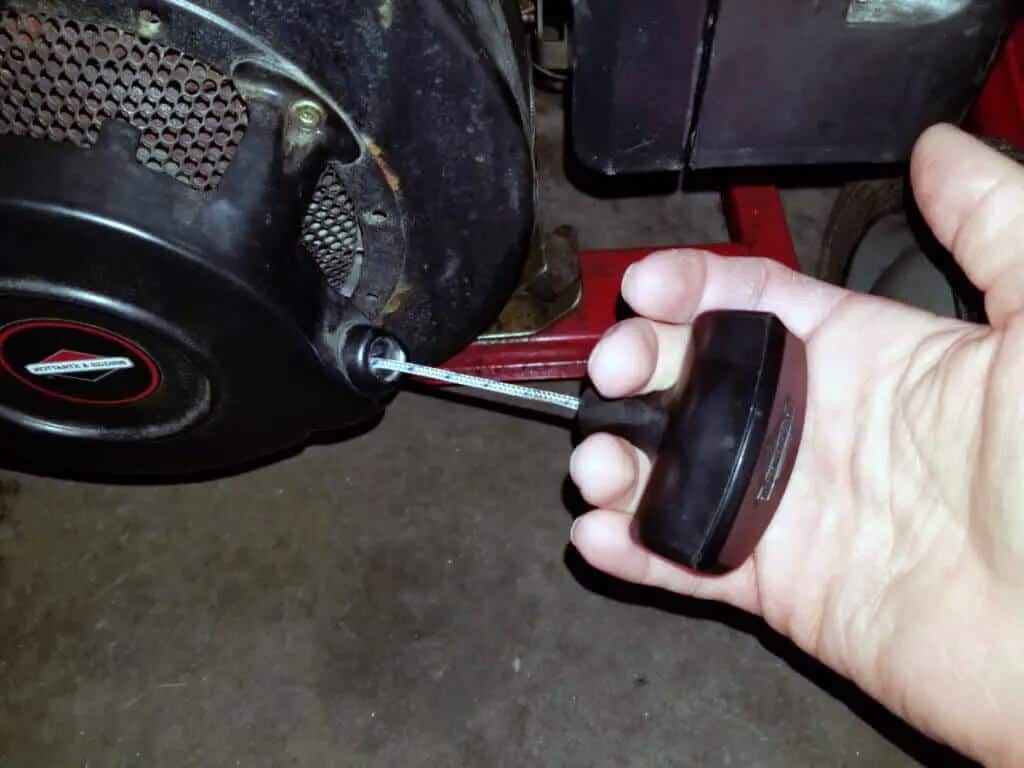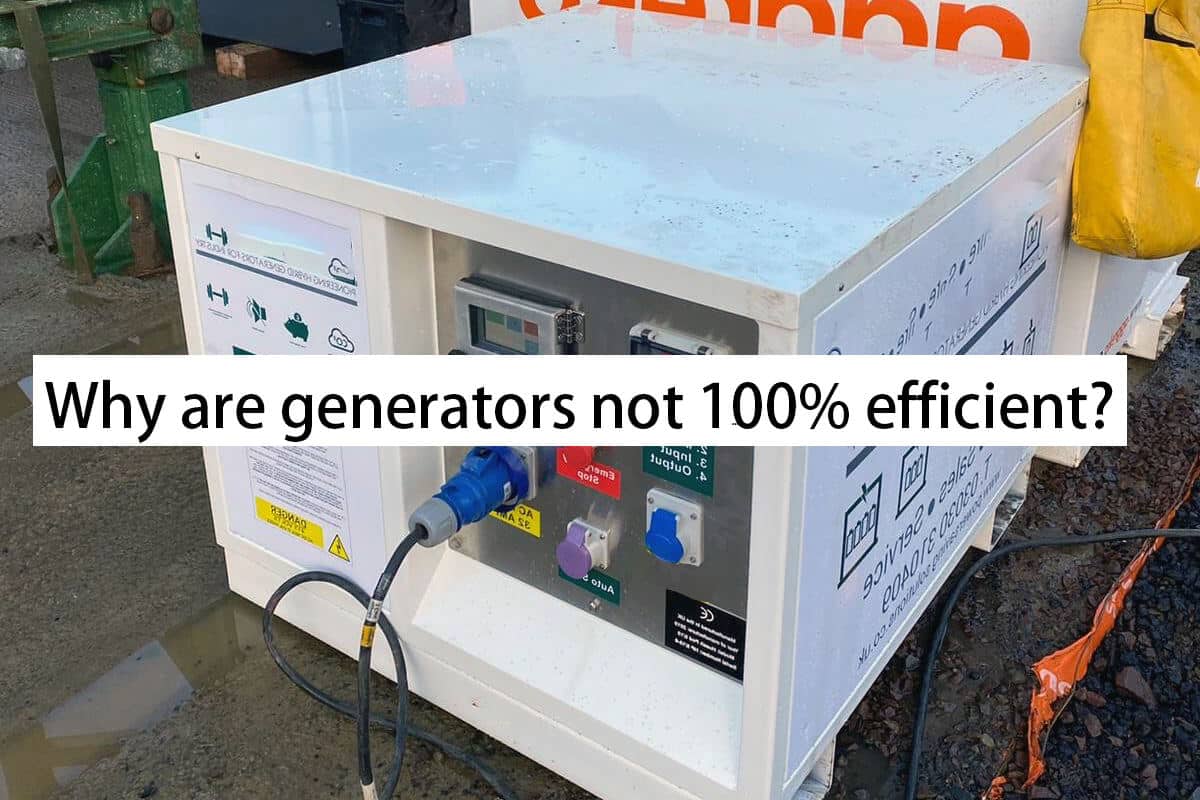Generator overheating causes and solutions
- BY BISON
Table of Contents
Diesel generators are known for their fuel efficiency, reliability, and long life. However, that doesn’t mean they won’t have problems getting up and running. One problem is the possibility of overheating. Overheating can be caused by improper use, a low coolant level, or a problem with the generator.
Why is generator overheating a bad thing?
If the engine overheats, the alternator will overheat and burn out the windings, affecting its insulation. The insulation in the windings will start to soften, and after that, it might melt or catch fire. When slip rings and brushes are exposed to such high temperatures, they can desolder themselves. Other issues you may encounter include:
- Warped rotors.
- Bearings begin to melt.
- If the cylinder head overheats, it may crush the head gasket, restricting coolant flow to the cylinder.
- Overheating may damage the radiator core.
- The exhaust valve can also expand and damage the valve guide.
Overheating of the generator can cause various parts of the generator to be damaged and need to be repaired or replaced. Also important to consider is the fact that occasionally the cost of repairs might be higher than the price of a new generator. If the generator shuts down, you’ll have to deal with power losses, which can mean downtime-related losses. Overheating can also significantly shorten the life of the generator, which means you’ll have to replace it sooner than expected.

Common causes of generator overheating
Now that you know how much overheating can damage your generator, you might wonder why your generator is overheating. They include;
- The coolant level is low, which may mean that the coolant is leaking internally or externally. Coolant leaks can be due to things like loose clips or leaking gaskets.
- Poor coolant circulation may be restricted due to a collapsed flexible hose.
- There is fouling outside the generator. A large amount of grease and dirt has accumulated on the generator surface, preventing proper heat dissipation.
- Excessive fueling of the generator.
- Damaged cooling fan or improper fan belt tension.
- Fuel injectors are clogged. The system will have to work extra hard to make up for the clogged injector if it is clogged, resulting in overheating.
- A clogged air filter can cause the generator to overheat and lose power.
- Exhaust damage, restrict exhaust.
- The generator is overloaded.
- The oil level is low.
It’s worth mentioning that a faulty gauge can cause overheating because if the generator overheats but the gauge fails, the cooling system won’t be triggered when the generator needs it. When the generator is actually within the normal operating temperature range, a defective gauge may also suggest that it is overheating. When it comes time to troubleshoot, make sure to double-check the gauge.

Potential problems in the external environment
Environmental factors can also affect the functioning of the generator. At high altitudes, the air pressure drops, reducing the air’s density. The air density is low, and the heat dissipation efficiency is not high. At high altitudes, heat dissipation occurs much more slowly, which can cause the generator to overheat.
In high-temperature areas, the air density is lower. When the air supply is low, there is less oxygen available for combustion, the engine pushes itself to provide the same amount of power, and it can end up overheating. High humidity can also stress the cooling system of the generator. When the outdoor temperature is high or the humidity is high, the coolant is not significantly different from the outdoor, so it isn’t easy to dissipate heat.
Potential problems in the internal environment
In order for the generator to cool effectively, it needs air movement. Therefore, if the generator is located in a basement, it must be ensured that the basement is well-ventilated with proper air circulation. If the air moves, the hot air around the generator will be replaced by cooler air, cooling the generator.
It is also important to check if there are other devices in the same room as the generator that may also be emitting heat. If this is the case, the temperature around the generator will be too high, possibly hindering its cooling system. The exhaust can also be blocked, which means the generator can’t cool itself effectively. (How Does The Diesel Generator Cooling System Work?)
How to keep your generator from overheating
Regular oil and filter change
Fresh oil is needed to keep the system lubricated so that all the different parts of the generator engine can work together seamlessly. As the oil ages, it becomes less and less effective, increasing wear on the engine’s overall components. If not changed regularly, the filter will become clogged and unable to keep harmful debris away from the engine. Delaying necessary oil and filter changes can eventually lead to overheating and irreparable damage. Change the oil and filter according to the manufacturer’s schedule to keep the generator running smoothly over time.
Maintain the coolant level
A stable coolant supply is critical to controlling the temperature of the generator power system. Coolant helps absorb heat generated by the engine. When there is not enough coolant in the system, the engine can get too hot and may shut down, especially if it overheats regularly. This can result in the need for expensive repairs or having to replace the engine completely. You should check the coolant level frequently to help ensure reliable performance.
Repair broken hoses
Punctured, leaking, or collapsed hoses can seriously reduce the energy efficiency of your equipment as they make your generator work harder than it needs to do its job at the same level. A faulty hose can quickly wear down the equipment and cause it to overheat. Sometimes it can be challenging to find a leak or tear in a hose, so if you suspect a leak and can’t find the source, contact a generator professional for help. They will be able to determine the source of the leak and fix it for you in a timely manner. It would be best if you also addressed any visibly worn or corroded fittings. Replacing them before they have a chance to break can help you prevent more major problems.

Do not block the exhaust area
Your generator exhaust will dissipate the hot air produced by the unit. If equipment, walls, or other structures block the exhaust area, it can cause the generator to overheat. We recommend placing the generator outdoors with adequate clearance between the generator and any windows, vents, or doors. This will help prevent dangerous exhaust chemicals from reaching the building while also preventing problems caused by clogged exhaust pipes.
Avoid overloading generators
BISON generators are available in a variety of sizes and power load capabilities. Typically, larger generators will have higher output ratings than smaller generator sets. It would help if you were extremely careful when exceeding the power capacity of the generator – continued overloading can shorten its life expectancy and lead to unreliable performance. If you need more power over time, consider purchasing a larger capacity generator that can power your growing needs.
Keep the exterior clean
It is essential to keep the exterior of the generator as clean as possible. If too much dust or dirt builds up on it, these small particles can get into the generator set and clog the filter faster than expected. Without clean filters, they can wreak havoc on the engine, eventually causing it to overheat or not run fully. You should periodically wipe the outside of the generator with a damp cloth, but never spray water directly on the generator or touch it with wet hands. Doing so could result in electric shock or even electrocution, so be careful when cleaning the device.
It would be best if you also took care to regularly remove debris and other debris from the area around the generator set, as they can block vents and restrict airflow on windy days, causing the generator to overheat quickly. To minimize risk, inspect the area daily and remove anything you think could be a potential problem with your generator.
Perform regular maintenance
Regular maintenance is the best thing you can do to keep your generator in top operating condition. Your maintenance technician will check the oil, filters, coolant, and other components that can cause overheating if neglected. They are also able to identify and fix any issues with your system before they escalate into bigger problems. Regular inspections of your generators can save your business thousands of dollars in repair bills over the years.

Conclusion
It is vital to keep the generator working properly so that it does not overheat. A portable generator needs airflow; no matter where you put it, you need to ensure it’s accessible and kept clean and maintain it regularly.
In addition to increasing the life of your generator, your generator will work more efficiently if you keep it maintained and clean. You will also prevent it from polluting the environment as it does not emit dangerous gases into the atmosphere. If you have a well-ventilated area, you should keep your generator in it; if not, you should make a shed that you can use to store your generator safely and securely.
If you are looking to purchase generators in bulk, BISON is the Chinese generator manufacturer you need. Check out our product list or contact us at (+86) 15906762707 or [email protected] and we can help you with any questions or concerns.
generator overheats FAQ
Can I spray my generator with water?
Don’t. Cold water can cause structural integrity to be compromised as well as cracks or serious damage to the engine and generator parts when it is sprayed upon hot metal.
Generally speaking, water is not the friend of a generator. Spraying water into generator components can damage connections and allow moisture to enter the fuel or fuel lines. Water can cause rust, which can weaken parts. Also, While the generator is running, any leftover water inside or on it could electrocute someone.
How do I know if my generator is overheating?
There may be a temperature sensor or meter on the generator that you may check. Otherwise, it may start making more noise, emit a lot of heat, or run intermittently.
What to do if the generator overheats?
Turn it off and let it cool. After cooling, check for leaks or external damage. Check oil and filters, and look for exhaust obstructions. Make sure there is proper air circulation. If there is no shelter and it’s hot outside, set up a tent to protect it from direct sunlight.
Do generators overheat in sunlight?
Yes, in direct sunlight, at temperatures above 90 degrees, the metal of the generator can reach temperatures of 120 degrees. This can lead to the generator overheating when coupled with the engine’s internal temperature. If possible, construct a tent or tarp shelter to shield the generator from the sun.
contact us
Please complete our contact form and we will soon get back to you with expert advice.
business
Get in touch to speak with our experts!

what is generator THD?
BISON will take an in-depth look at the concept of THD and its impact on generator performance and electronic equipment to ensure optimal power quality.

Why is My Generator Hard to Pull Start?
Is your generator hard to pull start? Don’t worry, we’ll tell you different ways to fix this problem. Read this guide to learn more.

Generator connecting rods reuse or replacement
Generator connecting rod reuse or replacement?Although it can be reused, always check for wear. If damaged, choose a replacement to ensure optimal performance.

Causes of damaged voltage regulator (AVR)
If your voltage regulator has been damaged then there may be many causes and reasons behind this. In this post, we’ll look at all those reasons and also how to fix them. Let’s get started.

How to generator load bank testing?
How to generator load bank testing? This test is a performance check that puts the generator under full load to verify its overall health and operation.

why are generators not 100% efficient?
The efficiencies of the generators are not 100% because part of the energy is lost as heat during the generation process.